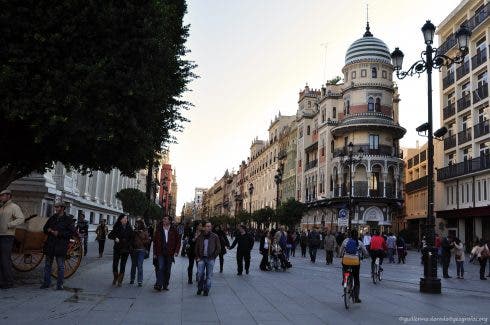TOURIST taxes are common worldwide. In Spain, there are currently found in Catalonia and the Balearic Islands.
Regional and municipal governments impose tourist taxes through accommodations at hotels and short-term rentals, which are typically collected by the property owner.
Catalonia was the first Spanish autonomous community to implement its tourist tax back in 2012, which is currently divided into two separate fees — one to the municipal government and one to the regional government.
Rates differ between Barcelona and other Catalan cities.

Visitors staying in Barcelona have to pay the fixed municipal rate of €3.25 per night — recently increased from €2.75 last year and €1.75 in 2022 — in addition to the regional government tax, which varies depending on type of accommodation.
The regional tax is €2.25 per night for apartments and €3.5 for five-star hotels, meaning that visitors to the Catalan capital should expect to pay in total €5.50 per night in an apartment and €6.75 in a five-star hotel.
For cruise ship visitors planning to stay in Barcelona for more than twelve hours, the combined total is €6.25 per night.
Elsewhere in Catalonia, tourists will have to pay €1 per night for tourist rentals, €1.20 per night for mid-level hotels and €3 per night for luxury accommodations.
However, Catalonia’s tourist tax only applies to short-term visitors.
That is, tourists will only be charged the tax for a maximum of seven days if they remain in the same accommodation continuously.
In the Balearic Islands, which has had a tourist tax since 2016, rates are dependent on both accommodation type and time of year.
The tourist tax is more during the high tourism season between October and May, when rates range between €1 and €4 per person per night, although children under the age of 16 are exempt.
Campers pay €1, cruise passengers and visitors staying in budget hotels pay €2, while those paying for mid-range hotels must pay €3, increasing to €4 for luxury hotels.
Tourist taxes are used by governments to shift the tax burden from residents to visitors, generate additional tax revenue, fund local environmental and cultural initiatives, and generally discourage overtourism by encouraging visitors to stay in less frequented areas.
The Himalayan Kingdom of Bhutan, for example, has one of the world’s highest tourist taxes, currently at around $100 per visitor per night, down from $200 last year.
Tourist taxes are typically imposed in vulnerable or popular areas prone to overtourism, where the cultural and economic impacts of heavy tourism have the potential to negatively affect local residents.
A new tourist tax in Madrid has been proposed on numerous occasions, most recently in May 2023 during the capital’s mayoral elections, when former Tourism Minister and candidate Reyes Maroto said she supported a tourist tax, to criticism from the tourist sector and political opponents.
A tourist tax in Valencia was en route to implementation in 2023, before the autonomous government repealed it in November.
It would have seen fees as high as $2 per night for high-end accommodations.
READ MORE
- This much-visited region in eastern Spain will abolish the controversial tourist tax from next week
- Travel update for Spain: There will be a need for a tourist tax in Andalucia ‘in the near future’






